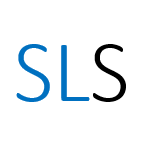Adjacency tools
Adjacency tools are used to try and keep multiple words closer together in a search string to avoid them being split up.
For example: ‘Chronic Pain’. Some databases use ADJ between the words, for example, ‘Chronic AJD Pain’ and others use NEXT or NEAR.
You need to check which is used in the help pages of the database you are searching. Take a look at this guide to find out more about carrying out adjacency and other similar searches ‘Proximity searching in databases’.
Auto-explode
Auto-explode is a search tool is found in the Ovid databases when MeSH searches are conducted. Auto-explode retrieves all the records that include the search term being searched, even if the focus of the article is not specific to that term. This useful if a search term is relatively new.
In the EBSCO databases the equivalent tool is called Explode and is found when using the Suggest Subject Terms tool.
Boolean
Boolean is the name of the Search Operators system used in constructing search strategies. The name is taken from the English Mathematician George Boole who devised a series of codes that allow the manipulation of data. In literature searching these codes include the search operators AND, OR and NOT. You can find out more about Boolean searching in this guide.
Focus
Focus is a search tool found in the Ovid databases when MeSH searches are conducted. The Focus tool retrieves core references that directly relate to the search term being searched. The results are usually more streamlined and there are fewer of them than for an Auto-explode search result.
Major concept
Major concept is EBSCO’s equivalent to Ovid’s Focus search tool. It retrieves core references that directly relate to the search term being searched. The results are usually more streamlined and there are fewer of them than for an Auto-explode search result.
Map term to Subject Heading
Map term to Subject Heading Ovid’s presentation of MeSH.
MeSH
MeSH is the acronym for Medical Subject Heading. Search terms are usually given MeSH status when the number of records within a database where this is the main focus on the articles hits a specific threshold.
Scoping searches
Scoping searches are preliminary searches that allow you to find out how much research has been produced based on the keywords searched.
Scope notes
Scope notes are found in the Ovid databases when MeSH searches are conducted. Scope notes give a definition of the term which that database applies to it. The scope note also lists previously used terms used for that term and give details of when the changes and entry into the database occurred.
Scope notes are found at the end of the table of MeSH headings. If you click on the ‘I’ icon under the ‘Scope’ heading you will see a definition of the term which that database applies to it. You will sometimes get Date of Entry information as well. The scope note also lists previously used terms used for that term and give details of when the changes and entry into the database occurred.
Truncation
Truncation is used to elongate the root of a search term. For example ‘nurs*’ would pick up search results such as nurse, nursed, nursery, nursing etc. Most databases use the asterix symbol for truncation * sign for truncation, although you should always check the databases help guide to make sure.
Wildcards
Wildcards are characters used within a term to change the context or incorporate variants of spellings. For example, ‘wom#n’ would retrieve women and woman. ‘Colo?r’ would retrieve colour and color. Different databases use different characters for wildcards.
